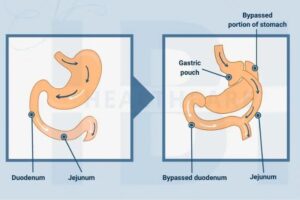Weight Loss Without Surgery: Non-surgical Procedures
Spatz Adjustable Gastric Balloon
The Spatz Gastric Balloon is a non-surgical weight loss device for people who need help with their eating habits and significant weight loss. Unlike other gastric balloons, the Spatz3 Gastric Balloon by Spatz Medical. The procedure adjusts the volume to optimize patient comfort and weight loss results.
The device is a soft, silicone balloon. Doctors insert it into the stomach and filled with saline. The balloon takes up space in the stomach and reduces food consumption. As well as making patients feel full sooner. The key to the Spatz3 balloon is its adjustability, where healthcare providers can increase or decrease the volume of the balloon based on the patient’s needs and weight loss progress.
The Spatz3 Adjustable Gastric Balloon works by making the stomach feel full, so patients eat less and lose weight. Doctors insert the device through a minimally invasive endoscopic procedure. That takes about 20-30 minutes under mild sedation. Once in place, the balloon is filled with saline to take up space in the stomach. This partial filling of the stomach reduces food intake and calorie consumption. If a patient is not losing weight as expected or is uncomfortable. Then doctors adjust the volume accordingly.
Dr. A Christopher, Ibikunle emphasis:
“Spatz ballon is a new addition, expanding our offerings with innovative and patient-centered solutions, ensuring that every patient has access to the best possible care for their unique needs. The Spatz3 Adjustable Reversible Gastric Balloon exemplifies this commitment, offering a cutting-edge option for those seeking a non-surgical, reversible, and adjustable weight loss treatment”.
Intra-Gastric Balloon
The intragastric weight loss balloon procedure allows patients to lose weight without the surgery. This procedure involves placing fluid- or gas-filled balloons into the stomach and is approved for patients with a body mass index of 30 to 40. Furthermore, a tiny camera guides the placement of fluid-filled balloons into the stomach through the patient’s mouth.
A physician advances the balloon and uses the camera to accurately position it and fill it with a safe saline solution. Then the balloon decreases the patient’s stomach size, limiting food consumption. The patient subsequently swallows up to three gas-filled balloons sequentially over several weeks before a doctor removes them endoscopically. Also, this procedure is reversible. The balloons are only intended to remain in place for six months to aid in weight loss before being removed.
Dr. A Christopher, Ibikunle, Ibikunle expresses:
“Overall, this efficient outpatient procedure only takes about 30 minutes. These balloons seem to work by delaying gastric emptying, which leads to an increase in satiety.”
Endoscopic Sleeve Gastroplasty
ESG was among the popular weight loss without surgery procedures. A physician performs an endoscopic sleeve gastroplasty (ESG) procedure similar to a traditional weight loss surgical sleeve gastrectomy. They suture the patient’s stomach to make it smaller without using an incision. Additionally, they insert a thin tube through the patient’s mouth and lead it into the stomach. Moreover, Endoscopic sleeve gastroplasty is an incisionless, minimally invasive approach to meaningful weight loss.
Dr. A Christopher, Ibikunle says:
“EGS procedure has a low complication rate and may be an option for sustained weight loss in patients who are not surgical candidates or who do not wish to pursue surgery.”
For weight loss without surgeries, doctors recommend patients with a BMI greater than 30 undergo, particularly for endoscopic sleeve gastroplasties. IBI’s Advanced Weight Loss Center offers several non-surgical weight loss procedures. Visit our before and after gallery to get inspiration from patient transformations. Call us or schedule a teleconsultation to inquire about gastric balloon or ESG procedures.











